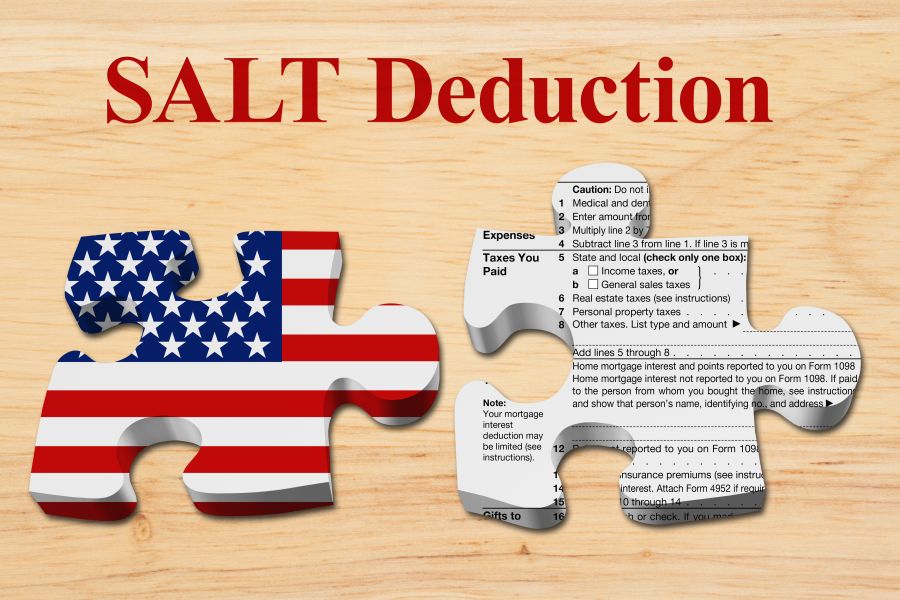Recent FTB Clarifications on Pass-Through Entity Tax (AB-150)

Recent pass-through entity (PTE) tax (AB-150) clarifications from the Franchise Tax Board (FTB) underscore that detailed planning is critical when considering this credit.
For an overview of AB-150, also see our initial 8/15/21 post on this subject: “California AB-150 Provides SALT Cap Workaround“.
PTE Election
The election to pay the tax is:
- made annually,
- is irrevocable, and
- can only be made on an original, timely filed return, including extensions
PTE Tax Due Date (2021 Tax Year)
For the initial year the PTE tax credit concepts exists (2021) the tax is due by original due date of the 2021 tax year return, without regard to extensions. For calendar-year taxpayers, that is March 15, 2022.
Logistics of PTE Tax Payments / K-1 Recipient Credits
- Prior to the original due date of the tax return (3/15/22 for calendar-year taxpayers), the full 9.3% must have been paid on all “qualified net income”
- In the event the tax return is filed after the original due date, such as in the case in which the return was put on extension, the pass-through entity will be subject to underpayment of tax penalties and associated interest on any shortfall
- K-1 recipients will be entitled to a credit for the full amount that is ultimately paid with the PTE return
Example: S Corporation ABC, Inc. makes an election to pay the PET for it’s calendar 2021 tax return on behalf of two of it’s individual shareholders. The S Corporation remits an entity-level tax in the amount of $18,600 calculated as 9.3% of it’s estimated “qualified net income” of $200,000 on or before 3/15/22. This payment entitles each of the two shareholders to a PET credit in the amount of $9,300 on their respective 2021 California individual income tax returns.
Ultimately, when the S Corporation files it’s extended return in September 2022, it ascertains that it’s “qualified net income” is, in reality, $220,000. As such, the S Corporation is required to pay an additional $1,860 ($20,000 x 9.3%) with the return, along with an underpayment penalty and associated interest on the shortfall. Payment of the shortfall also serves to increase each shareholder’s credit on their respective 2021 California K-1 by $930.
Note: This FTB clarification lays to rest the notion that taxpayers can intentionally underpay their PTE tax liabilities as a mechanism for minimizing the current California Tentative Minimum Tax limitation on the amount of PTE credits that can be effectively utilized on shareholder/partner/member’s personal returns.
PTE Tax Due Dates (2022-2025 Tax Years)
Taxpayer electing the PTE tax scheme must make a prepayment by June 15th of the year for which the PTE tax is intended to be elected in the amount of, the lesser of:
- $1,000, or
- 50% of the prior-year’s PET
Overpayments of PTE Payments
Also confirmed by the FTB is that pass-through entities that have over-estimated/paid their PTE liabilities are entitled to refunds at the entity-level due the fact that it is the PTE that paid the tax in the first place.
Ordering of the Application of PTE Credits vs Estimated Tax Payments
Tax liabilities are to be reduced first by PTE credits, and then by regular estimated tax payments. This is significant for the following reasons:
- overpaid regular estimated taxes may be refunded, whereas
- excess PET credits must be carried forward
Careful Consideration Needed Before Making PET Payments
When considering the subtleties related to the California PET election, not to mention the extensive tax projections needed to attempt to accurately determine if shareholders/partners/members will benefit from the credit, most notably the limitation of the credit to California Tentative Minimum Tax, it is recommended that careful consideration be given to the issues prior to jumping headlong into the PET election.
(This is Blog Post #1129)


